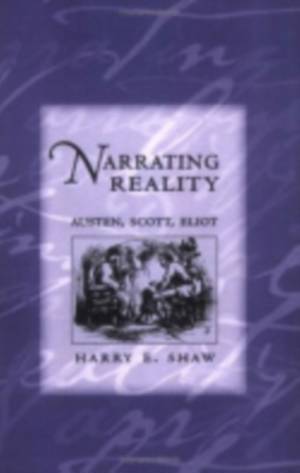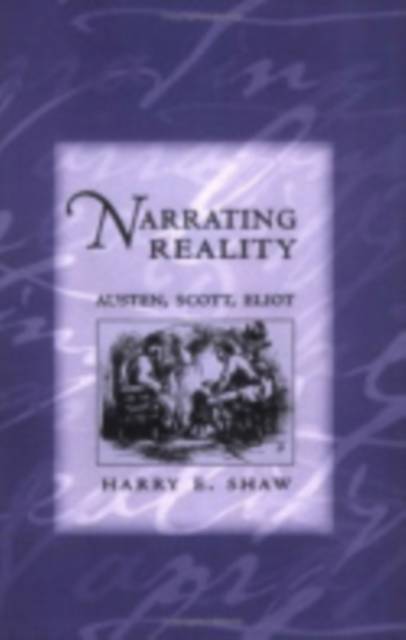
- Retrait gratuit dans votre magasin Club
- 7.000.000 titres dans notre catalogue
- Payer en toute sécurité
- Toujours un magasin près de chez vous
- Retrait gratuit dans votre magasin Club
- 7.000.0000 titres dans notre catalogue
- Payer en toute sécurité
- Toujours un magasin près de chez vous
Description
Narrating Reality offers a provocative and original critique of nineteenth-century British realist fiction and our ways of understanding it. Paying close attention to the role of the narrator, Harry E. Shaw challenges the denigration of realism that has become a critical orthodoxy in recent decades. Drawing on such thinkers as Erich Auerbach, Jürgen Habermas, and J. L. Austin, Shaw contends that realist novels claim not to replicate the world in their pages or to offer transparent access to it, but to involve readers in a process of narrative understanding adequate to grasping the complexities of life in history. Seen in this light, the works of such novelists as Sir Walter Scott, Jane Austen, and George Eliot, as they depict their own and other cultures and strive to imagine regions of freedom in the dense and constricting web of history, gain a new interest.
Spécifications
Parties prenantes
- Auteur(s) :
- Editeur:
Contenu
- Nombre de pages :
- 304
- Langue:
- Anglais
Caractéristiques
- EAN:
- 9780801489556
- Date de parution :
- 30-11-04
- Format:
- Livre broché
- Format numérique:
- Trade paperback (VS)
- Dimensions :
- 155 mm x 228 mm
- Poids :
- 412 g

Les avis
Nous publions uniquement les avis qui respectent les conditions requises. Consultez nos conditions pour les avis.






